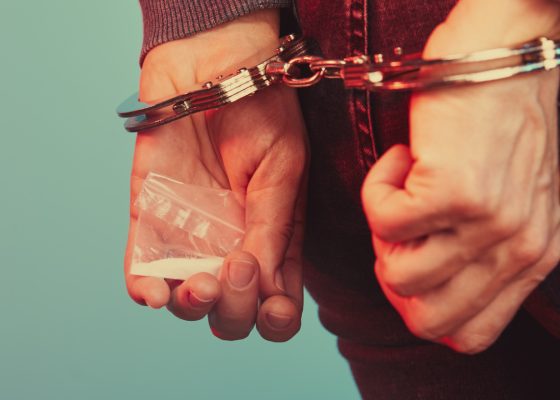Rejecting decriminalisation is a ‘comfortable political cop-out', Professor Dan Howard told the NSW Drug Summit. Time to bite the bullet.
The commissioner of the ice inquiry delivered a blistering critique of government inaction on the second day of the Sydney hearings of the NSW Drug Summit today.
Professor Dan Howard earned a standing ovation from the crowd after expressing his frustration at the delays and half-hearted official response to evidence including the findings of the special commission of inquiry, which came out in 2020 then gathered dust for almost three years.
The report’s 109 recommendations were still relevant and provided a clear plan for “getting our alcohol and other drugs sector off life support”, Professor Howard said.
“I must be candid and say that it galls me – and I expect that I am not the only one in this room – that we are being asked to revisit so many of the same issues yet again when work has already been done.
“Stories of lived experience are important. But how long will it take and how many times must we listen to what these courageous people are telling us before we act to address the issues that they have told us about?
“To fail them is almost an abuse of their courage and trust.”
Of his 109 recommendations, only 51 were supported by the then Coalition government, and another 36 were supported “in principle” – a kind of non-commitment for which Professor Howard had particular scorn.
“The overall response was lukewarm, and frankly, disappointing. There is so much more in those recommendations that still need action.”
He cited the University of NSW’s Drug Modelling Program evidence hub, which found removing penalties would not increase drug use, and the RACP’s position statement on a health-focused approach to drug policy (“But what would our physicians know?”) as aligning perfectly with the ice inquiry’s recommendations.
One of those recommendations, which he said the summit must achieve – and which has been its dominant theme – was decriminalisation of use and possession.
He showed a slide with the caption “Oregon is NOT NSW!”
This referred to a talk yesterday by Ted Wheeler, the former mayor of Portland, Oregon, who spoke by videolink about his city’s experiment with decriminalising possession. The measure was implemented after a popular vote but later dismantled by the legislature.
The rescission came, Mr Wheeler said, after drug deals came out in the open, leading to public dismay, and police lost their avenue via small-time users to prosecute larger criminal enterprises. There was also a lack of treatment services ready to meet demand.
One summit attendee suggested to The Medical Republic that inviting Mr Wheeler was a deliberate move by summit organisers to dampen calls for decriminalisation; indeed it produced negative headlines in other media.
Professor Howard said any comparison with Portland was a “false equivalence”, given the utterly different and extreme nature of North America’s opioid problem, its lack of healthcare and welfare, and the inadequately supported rollout.
“Don’t reject decriminalisation because of Portland,” he said. “Accept it because of Portugal, where it has been successful.
“If our politicians ignore the report of a detailed special commission of inquiry, the up-to-date position statement of our Royal Australian College of Physicians, and the evidence hub of the UNSW policy modelling program … and reject decriminalisation on the basis of Portland, then it will, with the greatest respect, be a comfortable political copout and a lost opportunity – a lost opportunity that will not come again for many years.”
Other urgent reforms were to remove discretion from police on diversion from court, to introduce drug checking, to improve access to treatment and rehabilitation in prisons, and to expand harm reduction, including by multiplying supervised injecting centres:
“It beggars logic to me that we distribute about 16 million clean needles in NSW every year as a recognised harm reduction measure, but provide only one medically supervised space in the entire state,” Professor Howard said.
Noting NSW’s last drug policy expired in 2010, Professor Howard said we had been “caught napping” when the purity and availability of ice skyrocketed in 2011 and must not be caught out again now that nitazenes and fentanyl were in the mix.
“Labor was elected on a platform that included holding this summit, the first in 25 years,” he said, addressing government members present including health minister Ryan Park.
“Implicit in holding such a summit is that you will act according to what you learn from it.
“You have a mandate now, but if you still don’t think that you do, here’s an idea. When the co-chairs’ report comes out early next year, bite the bullet and announce that you will be going to the next election with the proposal to decriminalise then spend the next two years in government resourcing our [alcohol and other drug] system to the level it deserves.
“We can then take the vital step to decriminalise and move away at long, long last from the failed law-and-order approach to simple use and possession that we know causes more harm than it prevents.
“The delay must stop here.
“No more inquiries, no more commissions, no more parliamentary subcommittee reports.
“I believe I speak on behalf of many here in this room today that the evidence-gathering has been done. The way forward is clear: let’s get on with it.”



